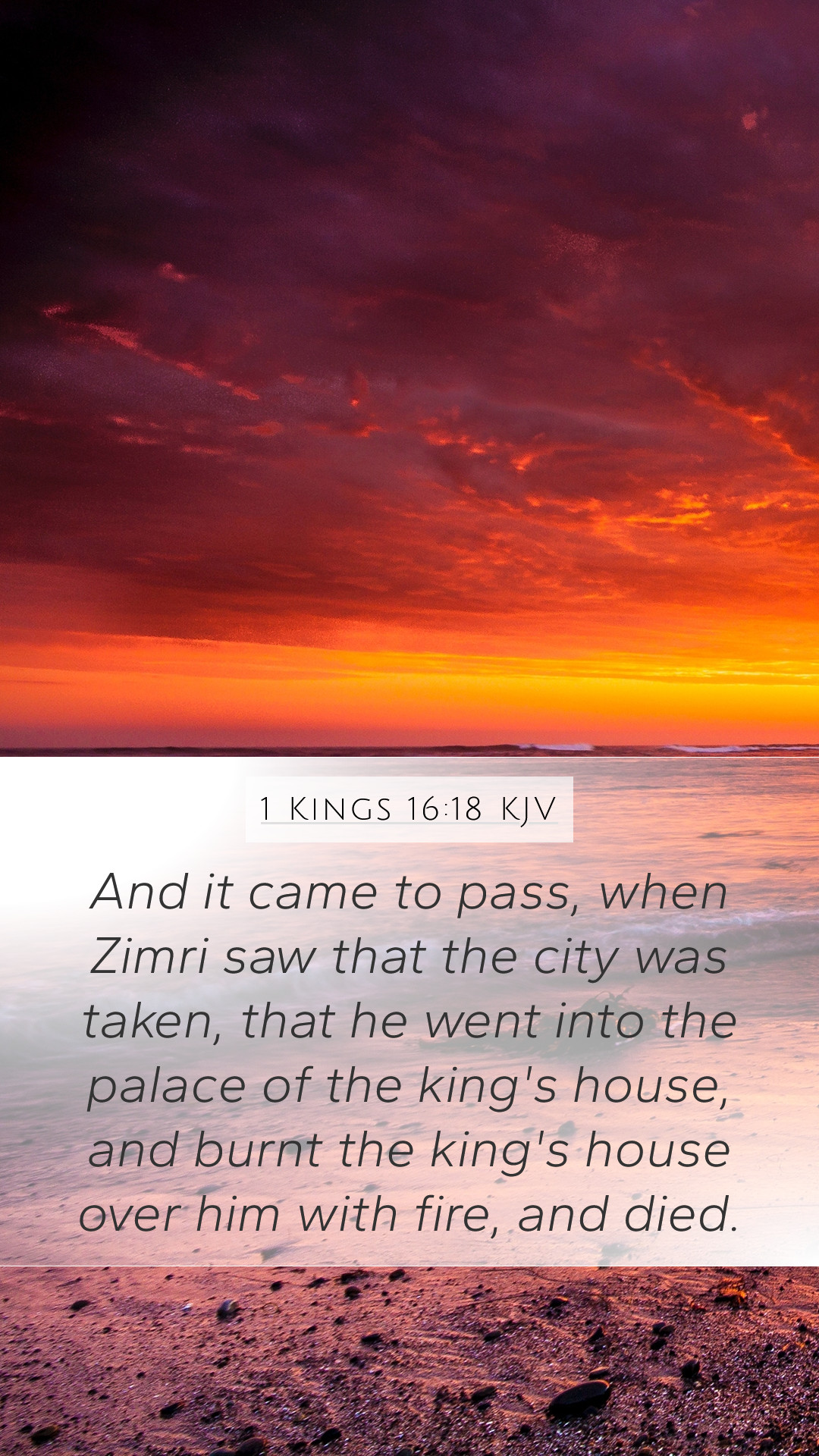Understanding 1 Kings 16:18
1 Kings 16:18 states, "And it came to pass, as soon as he began to reign, as soon as he sat on the throne, that he slew all the house of Baasha; he left him not one that pisseth against the wall, neither of his kinfolk, nor of his friends." This verse encapsulates a pivotal moment during the reign of King Zimri, illustrating themes of judgment and divine retribution.
Bible Verse Meaning
This verse signifies the completion of God's judgment upon the house of Baasha due to their sins against God. The act of King Zimri eliminating Baasha's family serves as a divine declaration that sin results in dire consequences.
Insights from Public Domain Commentaries
- Matthew Henry: Henry emphasizes the brutal nature of Zimri's rise to power, indicating that it reflects the turmoil and bloodshed typical of Israel's monarchy. The extermination of Baasha's lineage underscores the fulfillment of God's warning against idolatry and disobedience.
- Albert Barnes: Barnes explains that the phrase "that pisseth against the wall" is a euphemism that describes males, portraying the total annihilation of Baasha's household. This action is framed as a scriptural necessity, fulfilling the prophecy given regarding the house of Baasha, indicating God's precise judgment.
- Adam Clarke: Clarke discusses the historical implications of Zimri's actions, stating that this violent political upheaval represents a typological judgment against sin. He also highlights the chaotic political landscape of Israel during this period, where treachery and violence became prevalent.
Bible Verse Interpretations
Various interpretations arise from this brief but impactful verse. Here are a few:
- Historical Context: Understanding the sociopolitical atmosphere of ancient Israel, where power struggles often resulted in bloodshed, is vital for interpreting this verse.
- Divine Sovereignty: The verse exemplifies God's sovereign rule, demonstrating that He executes His justice through temporal events in history.
- Ethical Considerations: The violent nature of Zimri's actions raises questions regarding morality and justice, prompting deeper reflection on the nature of divine judgment.
Significance of 1 Kings 16:18
This verse serves multiple purposes in the narrative of Kings:
- It highlights the consequences of leading a nation away from God, emphasizing the importance of fidelity in worship and righteousness.
- It acts as a stark reminder that God's judgment is inevitable for those who transgress His commandments, reinforcing the notion of divine retribution throughout Scripture.
- It sets a precedent for future biblical narratives, as dynastic upheavals often bear significant implications for the people of Israel.
Application of 1 Kings 16:18
For modern readers, this verse encourages reflection on:
- The importance of making righteous choices in positions of influence.
- The impacts of societal and personal sin and the ultimate justice of God in the world.
- Understanding the historical context of biblical passages to discern their meanings accurately.
Related Bible Cross References
- 1 Kings 15:29 - Consequences of Baasha's reign.
- 1 Samuel 15:3 - God's command for total destruction of the Amalekites, drawing a parallel.
- 2 Kings 9:7 - God's purpose in eliminating the house of Ahab, akin to Baasha's fate.
Bible Study Insights
This passage provides a rich area for Bible study insights, particularly about the nature of God's justice and the historical context of Israel's monarchy. This verse can be explored through Bible study groups or online Bible study platforms to foster discussion around divine sovereignty and human agency.
Conclusion
1 Kings 16:18 offers profound insights into divine judgment and the consequences of sin. Its applicability to modern faith and life invites deep Bible verse understanding and highlights the necessity of examining Scripture analysis in the context of historical narratives and their theological implications.


